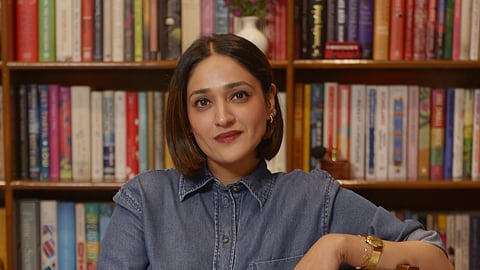

Maybe you’ve seen movies or documentaries showing the horror of dead people arriving en masse in trains across the border, read books about the atrocities committed, or closer to home, have a relative who lived through it – if you grew up anywhere in South Asia, it’s impossible not to learn about the partition. While it’s easy to understand how someone who lived through the atrocities would be psychologically impacted by it, trauma on such a scale is not so straightforward, with generations of survivors’ descendants too, being shaped by it. Oral historian Aanchal Malhotra, known for her book In the Language of Remembering, explores exactly this.
Malhotra, who was in the city recently for the 10th World Congress of Women’s Mental Health at NIMHANS, explains, “Either willingly or unwillingly, memories find different ways to settle into young people. One could feel intense anger while another could experience a feeling of inherited fear. You can feel nationalism for where your family chose to settle, but also feel curiosity or longing for the land they left behind, and these emotions can coexist. Sometimes, it takes a long time for healing to be discovered within people.” She adds, “In the case of partition, silence ends up being a deafening language. It’s quite loud; penetrating it and engaging in conversations that are internal, exhuming meaningful history becomes very difficult.”
Despite this, Malhotra finds oral history to be a uniquely sensitive and dignified way of preserving history, allowing people to tell their own stories with nuances that traditional historical sources miss. “Oral history does not limit people’s experiences as uniform, allowing them to speak for themselves – as much or as little as they want to, in the languages that they choose to speak in. Language is not always verbal and oral history is abundant enough for those distinctions.” Recalling her interview with the niece of a woman who was abducted and sexually abused before she got married, she adds, “What she [the niece] observed was the body language, how she never spoke more than what was asked of her; she wondered whether she kept to herself because if she talked too much, maybe something would come out.”
Through her books Remnants of Partition and Remnants of a Separation, as well as her digital archival project Museum of Material Memory featuring pictures and stories of old objects contributed by people across South Asia, Malhotra has used objects as a gateway into her subjects’ memories. She explains her fascination, saying, “Let’s say a person has an old object in their house, maybe a sewing machine or something else. We could ask an elderly person, maybe the parent, grandparent or aunt about that object, and it starts a conversation of inter-generational memory-keeping. It is organic, and quite wonderful to witness because people end up learning a lot about their own history through this often mundane object.”
Despite her love for oral histories and commitment to telling stories of partition, Malhotra confesses that it is not an easy weight to bear. “It’s one thing for a person to tell you their story, but it’s another thing entirely to carry hundreds of these stories, have them sit in your mind and feel something for each of them, not even realising when they start to embroider themselves into your life and change you as a person,” she says. The 10th World Congress of Women’s Mental Health at NIMHANS, was one of those rare platforms where conversations around this had a platform. Malhotra says, “I thought it was incredible, because not only would I get to listen to other people, but that I could talk about what I feel after the collection of so many stories. It’s not discussed very often, and that trauma, that second-hand state of it, does really impact your own mental health in ways that you don’t even realise.”